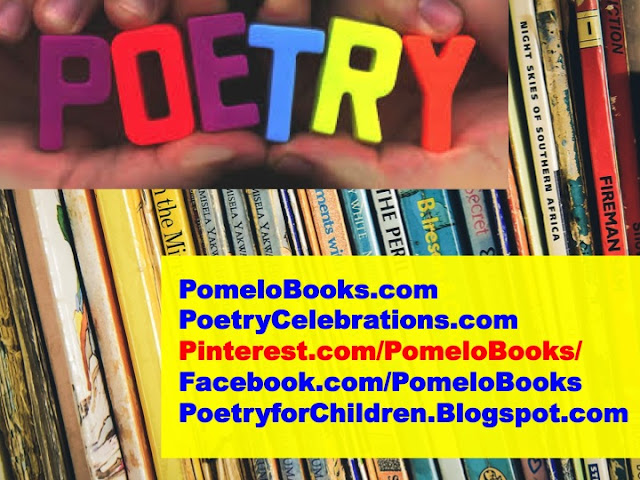 It's time for Día!
It's time for Día!
Children’s Day, Book Day or El día de los niños, el día de los libros—often known as Día (day in Spanish)—is a year-long commitment to linking all children and families to books originated by author and literacy advocate Pat Mora. Día, a collaboration of national literacy organizations, presses, and readers, creatively celebrates all our children and the the importance of "bookjoy" in their daily lives, and promotes Children’s Day, Book Day celebrations. April book fiestas are held in schools, libraries, parks, homes, and elsewhere on or near April 30.
Here's Pat speaking briefly about Día:
Pat also wrote a poem about celebrating Día for The Poetry Friday Anthology for Celebrations:
And here are the Take 5 activities that accompany this poem:
1. While reading this poem aloud, be sure to clap (in the first stanza), tap (in the second stanza), snap (in the third stanza), and do all three in the final stanza.
2. Share the poem aloud again, inviting children to join in on the clapping, tapping, and snapping, too.
3. Use the resources at Dia.ALA.org to plan a Día celebration program for Children’s Day/Book Day, such as hosting a book club or downloading quick coloring pages and activity sheets.
 4. Pair this poem with the picture book Book Fiesta! Celebrate Children's Day/Book Day/Celebremos El día de los niños, el día de los libros by Pat Mora (Rayo, 2009) and encourage children to join in on the cheers.
4. Pair this poem with the picture book Book Fiesta! Celebrate Children's Day/Book Day/Celebremos El día de los niños, el día de los libros by Pat Mora (Rayo, 2009) and encourage children to join in on the cheers.
5. Connect with another poem that celebrates reading, “At Our House” by Virginia Euwer Wolff (November, pages 286-287), and with the bilingual poems of Colors! Colores! by Jorge Luján (Groundwood, 2008).















































